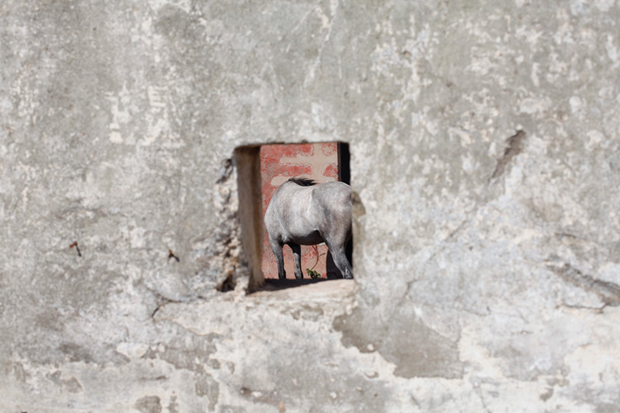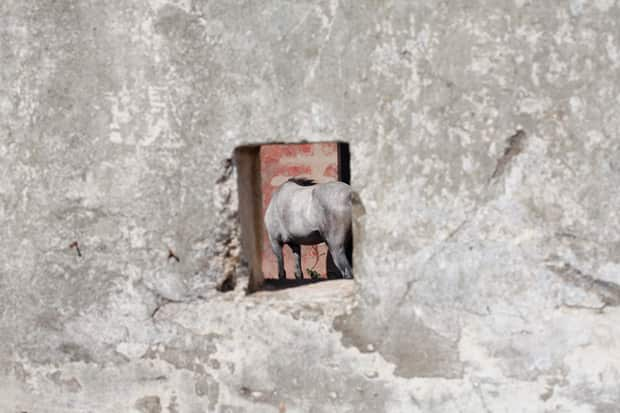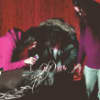Last time Jace Clayton (bka DJ Rupture) was on the road with FADER photo editor John Francis Peters they were chasing down tribal guarachero in Monterrey Mexico. Now they’re in Morocco for the month of June, working on an art/research project called Beyond Digital. They’ll check in each Friday.
“You’re growing up in the village and there’s all this folkloric music. Then on the radio you hear Shakira…” Hassan Wargui opens his eyes wide. That’s it. The chasm between the familiarity of traditional music and the urge to make things new. Hassan’s conclusion: he should craft himself a banjo. He had never actually seen a banjo; in the Berber traditional music of his village, Issafn, no one uses it. But he had heard it; Morocco’s most loved group, Nass El Ghiwane, popularized the instrument in the 1970s. So armed with a photograph, a few pirate CDs, and the do-it-yourself inventiveness of a smart kid in a small town, Hassan built his own banjo and taught himself to play. Only years later when he came to Casablanca to work did he buy himself a “real” one.
We're talking over crème café in a nondescript cafe in Casablanca's Maarif neighborhood. In a way, this conversation began with our visit to Casa last April, when we stopped off at a stall in the medina selling polyester hijabs, which also stocked CDs behind the counter. Of all the songs we skipped through with the shopclerk, one clearly homemade, self-produced album stood out. It was extraordinary—various styles of Berber music from south Morocco blended together in a distinctly contemporary way, with spacey banjo lines and haunting group vocals, unlike anything we'd heard.
There was a phone number on the CD labelled “Allo Imanaren.” Last week we called it. The gruff voice said, “You could not possibly like that music. Stop bothering me.” Then he hung up. We persisted and eventually got another number. With it we reached Hassan, composer, singer, songwriter, banjo player and remixer for the group. He also has a YouTube channel, with lo-fi videos of himself and his friends shooting the shit (dressed as old men, trying not to laugh). Hassan's still not sure whose phone number we called, and to be true, it is surprising that we found his CD, since the hijab-and-music stand in the medina is the only shop in this entire city that carries it.

Imanaren is the Tamazight word for the three stars of Orion’s belt. And there is something of summer nights in the six songs the young group has recorded so far (Imaranen is only four months old): a softness, a buzzing, a yearning. The lyrics are all in Tashelhit, one of the several major dialects of Tamazight and the group’s mother tongue. Hassan writes them all himself: “about love and revolution.” Non-Berbers will not listen to it, says Hassan, because they don’t understand the words. Then, thinking about it, he laughs, “But we all listen to music in English, and we don’t understand that either!” (Listing his favorite groups, Hassan cites Moroccan musicians from the tumultous 1970s, then Shakira, Celine Dion, Eminem, and Akon.)
Here is an Imanaren song about human rights and the Arab Spring revolution. It's set to casual video footage photographer John Francis Peters took as he traveled from this home in upstate New York to touchdown in Casa. We didn't understand the lyrics to this Imanaren song when we choose it, but things can happen fast in a country where things happen slowly; since then we've gotten their blessings for the video, and have begun unraveling their own internet video tangle.
For the moment Imanaren don’t have a producer or a distributor: Hassan is doing it all himself. Paying for the recording studio, CD production, and then carrying them by hand to all the little music shops in cities around the south—Agadir, Taroudant, Tata—which take them on consignment. Just the bus between the different cities costs more than he could possibly make from the discs’ sale. He shrugs: “We love the music.”
And we do too. So tonight we’re renting a car and driving south for a solid ten hours, over the Atlas mountains and into the Berber heartland to Issafn with Hassan and his percussionist friend Omar to see where it comes from. Allo Imanaren!


